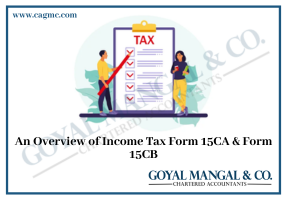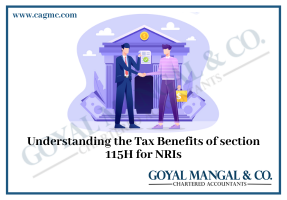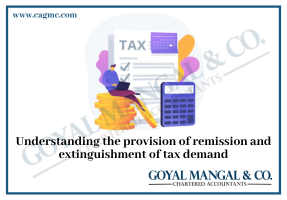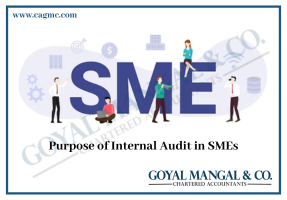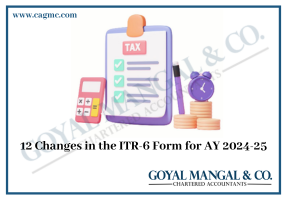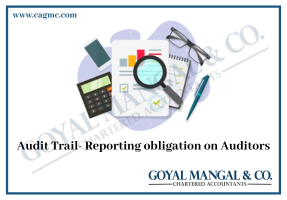
India is a religious and devout country. India has a long tradition of using charitable gifts to achieve spiritual fulfilment for good deeds. Individuals from all over India have made monetary and in-kind contributions to various trusts, NGOs, charity organisations, temples, and other institutions, sometimes out of compassion and sometimes out of religious conviction. Also, many of us have at some point thought about donating to charity and doing our bit for society. Contributing to a cause you truly believe in and making a difference is commendable. Due to the nobility of this gesture, the government fully supports the charitable services. Section 80G of the Indian Income Tax Act, 1961 allows you to deduct tax on donations made to a charity.
What is Section 80G?
Section 80G is a provision in the Income Tax Act, 1961 that permits taxpayers to claim deductions for certain charitable contributions. Contributions to specified relief funds and charity institutions are eligible for the deduction under the Act. Not all charity contributions are deductible under Section 80G. Only contributions to the specified funds are deductible. To encourage people to give, the government of India implemented Section 80G deductions. By lowering income taxes, the government hopes to encourage people to donate more to deserving organisations.
The amount contributed may be claimed as a deduction under Section 80G when the assessee files his or her income tax return. Individuals, partnership companies, HUFs, corporations, and other categories of taxpayers can claim Section 80G deductions regardless of the type of income produced. The Income Tax Department assigns a registration number to trusts and institutions registered under Section 80G, and contributors should ensure that this number appears on their receipt. This registration number must be current on the day of the gift. If the gift is made while the Section 80G registration is inactive, the donation will not be deductible.
Only donations to prescribed funds qualify as a deduction. This deduction can be claimed by any taxpayer—individuals, companies, firms, or any other person. This deduction is not available if you opt for the new tax regime.
You can claim a deduction under Section 80G of the Income Tax Act for contributions to certain relief funds and charitable institutions. However, all donations are not eligible for deductions under Section 80G.
Eligibility for claiming Deduction under Section 80 G of Income Tax Act, 1961
If you want to claim tax deductions under Section 80G of the IT Act, you must fulfil the following criteria:
- You must be either an individual or a HUF.
- Non-residents of India who make contributions to the relevant trusts
- You must provide evidence of your donations.
- You must have made the charitable contribution from your taxable income. Donations made with non-taxable income are not tax-deductible.
Scope of Deduction under Section 80G of Income Tax Act, 1961
There are certain basic criteria that must be met for a gift to be valid under Section 80G. Some of the main points are listed below.
- Donations should only be paid through taxable or exempt income. Donations made through other tax-free sources of income are not eligible for deduction.
- Only those gifts that are paid in cash or check are eligible, while gifts in the form of clothing, food, medicine, etc. are not eligible under Section 80G.
- Only companies are eligible for deductions with respect to donations made to the Indian Olympic Association.
- Only those donations made to valid and registered trusts are eligible for deductions.
- Donations made to foreign institutions and political parties are exempt from deductions.
Deduction Amount under Section 80G of Income Tax Act, 1961
Certain criteria apply to donations made to qualifying trusts and organisations that qualify for tax benefits. Section 80G donations are roughly categorised into four kinds. The categories are as follows:
- Donations with a Tax Deduction of 100% (Available without any qualifying limit): Donations given under this category qualify for a full tax deduction and are not subject to any qualifying criteria. Such deductions are available for contributions to the National Defence Fund, Prime Minister’s National Relief Fund, and National Foundation for Communal Harmony, National/State Blood Transfusion Council, and other organisations.
- Donations with a 50% Tax Deduction (Available without any qualifying limit): Donations to trusts such as the Prime Minister’s Drought Relief Fund, the National Children’s Fund, the Indira Gandhi Memorial Fund, and others qualify for a 50% tax discount on the amount contributed.
- Donations with a full Tax Deduction (up to 10% of adjusted gross total income): Donations to local authorities or the government to encourage family planning, as well as donations to the Indian Olympic Association, are tax deductible under this category. In such circumstances, deductions are limited to 10% of the donor’s Adjusted Gross Total Income. Donations in excess of this amount are limited to 10%.
- Donations eligible for a 50% deduction (up to 10% of adjusted gross total income): Donations made to any local authority or government that will be used for any charitable purpose are eligible for deductions under this category. In such circumstances, deductions are limited to 10% of the donor’s Adjusted Gross Total Income. Donations in excess of this amount are limited to 10%.
Claiming Section 80G Tax Deductions
It is crucial that you provide documentation of your gifts to the charity organisations if you want to claim deductions under Section 80G of the Income Tax Act. If you wish to receive a successful tax refund, make sure you have a receipt for your gifts from the charity you gave to. Please take note that the following information must be included on the receipt:
Name of the donor, the amount provided the name, address, and PAN of the recipient of the contribution, as well as the charity organization’s registration number.
- Essential Conditions for claiming Deduction under this Section 80G
The following are the essential conditions for claiming Deduction under this Section 80G:- All assessees are eligible for a deduction under this clause, whether they are companies or individuals, and regardless of whether their income falls under the heading “earnings and gains of business or profession.”
- Donations should be made in cash.
- Only the designated funds or organisations shall receive the gift.
- Any gift over Rs. 2,000 is not eligible for a deduction under this clause unless it is made through a method other than cash.
- In order to claim a deduction under this clause, the assessee must present valid evidence of payment. The deduction under section 80G is not allowed if the payment is not supported by the submission of an appropriate receipt, for example.
- No additional deduction shall be permitted in respect of such sum for the same or any other assessment year if a deduction in respect of any donation is granted for any assessment year.
What is the Mode of Payment under Section 80G of Income Tax Act, 1961?
This deduction can only be claimed if the contribution is made by check, money order, or cash. Contributions in kind like food, material, clothing, medicine, etc. are not eligible for deduction under Section 80G.
- Amendment to Section 80G: From the financial year 2017–18, no cash donations exceeding Rs 2,000 will be allowed as deductions. Donations above Rs 2,000 should be made by any means other than cash to qualify under Section 80G. Earlier, the cash donation limit was Rs. 10,000.
- Eligible amount of donation: Miscellaneous donations mentioned in Section 80G are eligible for deduction up to 100% or 50% with or without limitation as mentioned in Section 80G.
Documents required to claim Deduction under Section 80G
Individuals who wish to claim deductions under Section 80G must have the following documents to support their claim:
- A duly Stamped Receipt: It is mandatory to have a receipt issued by the trust or charity receiving the donation. This receipt should contain details like the name, address, and PAN number of the trust, the amount donated, and the name of the donor.
- Form 58: Form 58 is necessary if the donor intends to claim a 100% deduction on a gift, without which his donation will not be eligible for a 100% deduction.
- Trust Registration Number: Every eligible trust is allotted a registration number by the Income Tax Department, and donors should ensure that their acknowledgment contains this number. This registration number must be valid on the date of the specific donation or the donation may not be eligible for deduction.
Mode of Payment for Donations under Section 80G
An individual can claim deductions against donations made under Section 80G. Payment for donations can be made in cash or through checks and money orders. However, there are a few things to keep in mind in this regard:
- Cash donations exceeding Rs 2,000 will not be eligible for deduction.
- Donations in kind (food, medicine, clothing, etc.) are not deductible.
- In order to claim deductions under Section 80G, donations of more than Rs 2,000 need to be made through any mode other than cash.
- Donations will be eligible for deductions of 50% or 100% (with or without limitation), as per the rules prescribed under Section 80G.
Concept of Adjusted Gross Total Income
The phrase “adjusted gross total income” refers to gross total income, which is the total of all income under all headings before relief under Chapter VI-A is granted, after the following deductions:
- Deductible Amount under Sections 80CCC to 80U (without including Section 80G)
- Profits made over the Long Run
- Section 111A taxes short-term capital gains at a rate of 15%.
- Income related to non-residents and foreign businesses that are mentioned in Sections 115A, 115AB, 115AC, and 115AD.
Conclusion
The Indian Income Tax Act, 1961 allows taxpayers to claim tax deductions for donations made to prescribed charitable trusts. Giving to charities is a noble gesture that should not be disregarded. In addition to monitoring management and administrative practises, the government works actively to dismantle a tax code that permits charity contributions to be written off. Taxpayers can show donations as deductions on their ITR and avail tax benefits from their income. Any individual, firm, company, or HUF can claim a tax deduction under Section 80G. The government’s decision confirms the belief that it offers unwavering support for causes like contributions and charitable giving. Giving not only promotes honour but also helps individuals in need of help change for the better. It guarantees that any contribution you make, no matter how modest, will result in a tax advantage. Granting 50% or 100% tax breaks will not only attract new donations but also lead to significant national growth.

